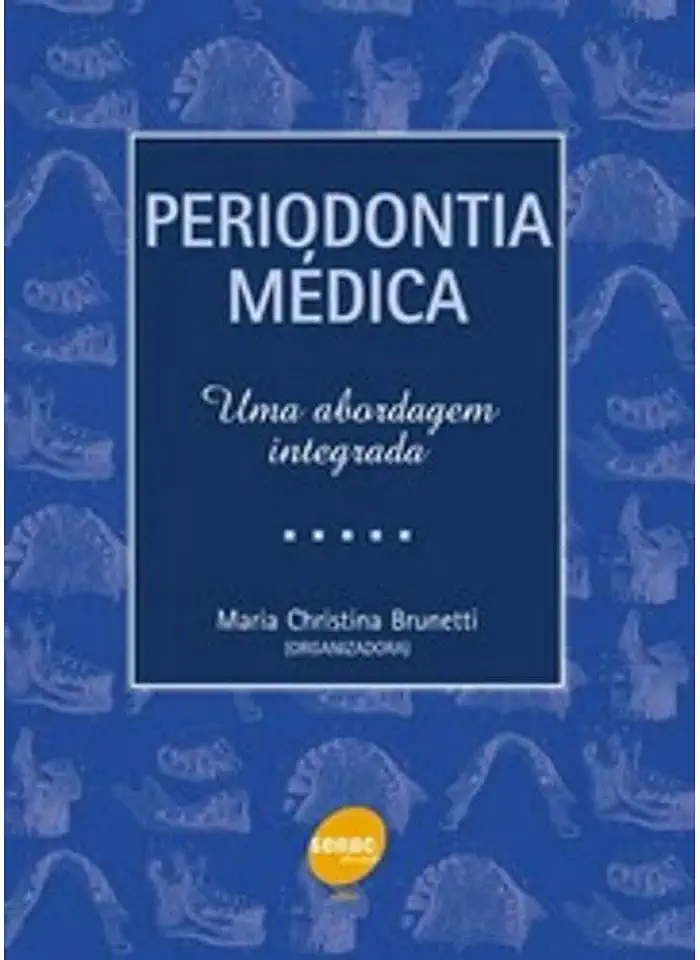
Medical Periodontology - An Integrated Approach - Maria Christina Brunetti
Medical Periodontology - An Integrated Approach
By Maria Christina Brunetti
A Comprehensive Guide to the Interrelationship between Periodontal Disease and Systemic Health
1. Introduction
Medical Periodontology - An Integrated Approach is a comprehensive guide to the interrelationship between periodontal disease and systemic health. This book provides a detailed overview of the latest research on the connection between periodontal disease and various systemic conditions, such as cardiovascular disease, diabetes, and respiratory disease. It also discusses the role of periodontal therapy in the prevention and treatment of these conditions.
2. Periodontal Disease and Systemic Health
Periodontal disease is a chronic inflammatory condition that affects the gums and supporting structures of the teeth. It is caused by bacteria that form plaque on the teeth. If plaque is not removed regularly, it can harden into tartar, which can irritate the gums and cause them to become inflamed. This inflammation can lead to a number of problems, including bleeding gums, receding gums, and loose teeth.
In addition to causing oral health problems, periodontal disease has also been linked to a number of systemic health conditions, including:
- Cardiovascular disease: Periodontal disease is a risk factor for cardiovascular disease, including heart attack and stroke. This is because the bacteria that cause periodontal disease can enter the bloodstream and travel to the heart, where they can damage the blood vessels.
- Diabetes: People with diabetes are more likely to develop periodontal disease than people without diabetes. This is because diabetes can damage the blood vessels that supply the gums, making them more susceptible to infection.
- Respiratory disease: Periodontal disease has been linked to an increased risk of respiratory disease, such as pneumonia and bronchitis. This is because the bacteria that cause periodontal disease can be inhaled into the lungs, where they can cause inflammation and infection.
3. Periodontal Therapy and Systemic Health
Periodontal therapy is the treatment of periodontal disease. It can involve a variety of procedures, such as scaling and root planing, antibiotic therapy, and surgery. Periodontal therapy can help to improve oral health and reduce the risk of systemic health problems.
In addition to treating periodontal disease, periodontal therapy can also help to improve systemic health by:
- Reducing inflammation: Periodontal therapy can help to reduce inflammation in the body, which can improve cardiovascular health and reduce the risk of diabetes and respiratory disease.
- Improving blood sugar control: Periodontal therapy can help to improve blood sugar control in people with diabetes, which can reduce the risk of complications such as heart disease, stroke, and kidney disease.
- Reducing the risk of respiratory disease: Periodontal therapy can help to reduce the risk of respiratory disease by preventing the bacteria that cause periodontal disease from being inhaled into the lungs.
4. Conclusion
Medical Periodontology - An Integrated Approach is a valuable resource for dentists, hygienists, and other healthcare professionals who want to learn more about the interrelationship between periodontal disease and systemic health. This book provides a comprehensive overview of the latest research on this topic, and it discusses the role of periodontal therapy in the prevention and treatment of systemic health conditions.
If you are interested in learning more about the connection between periodontal disease and systemic health, I highly recommend reading Medical Periodontology - An Integrated Approach. This book is a valuable resource for anyone who wants to improve their oral health and overall well-being.